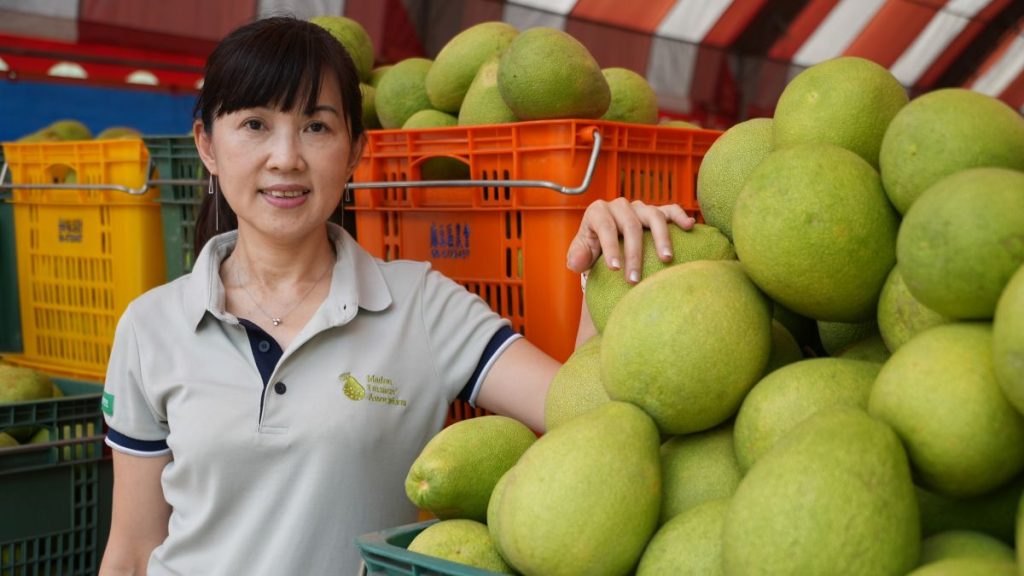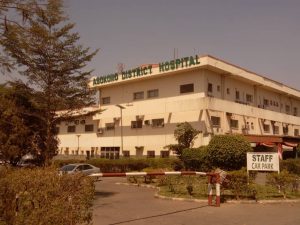China flexes military muscles, then targets Taiwan’s citrus fruits

Taiwanese pomelos, known for their juiciness and softness, are highly popular on both sides of the Taiwan Strait, especially during the Mid-Autumn Festival, an important holiday in Chinese culture that falls this year on September 10. August and September are usually the busiest months for Li and other pomelo farmers in the Madou township, as they prepare for the harvest, but this year they’re facing an unexpected challenge: Chinese import bans.On August 3, amid rising tensions between Beijing and Washington over US House Chiao said while the latest ban will have some short-term impact on Taiwanese farmers, it’s unlikely to create any significant economic impact because agricultural exports only make up a tiny percentage of Taiwan’s overall trade.The island’s most valuable export is its cutting-edge semiconductor chips, which are needed to power everything from computers and smartphones to robots. One Taiwanese company in particular — Taiwan Semiconductor Manufacturing Company (TSMC) — is the world’s largest contract manufacturer of chips, and accounts for 90% of the world’s super-advanced chips, according to industry estimates.More than half of Taiwanese exports to China are semiconductors, while agricultural products make up less than 1% of the total value, according to Roy Lee, a deputy executive director at Taiwan’s Chung-hua Institution for Economic Research.”I think weaponizing sanctions on agricultural and food products produces a bigger symbolic effect than actual economic impact,” Lee said. Chiao agreed that “psychology is a bigger factor” behind the import bans. However, he said that economic coercion will likely create greater anti-China sentiment among the Taiwanese public.”This time, China announced these economic sanctions against the backdrop of large-scale military drills,” he said. “If you think of the military drills as the main protagonist, there must be other supporting roles. Hence the Commerce Ministry also enacted economic sanctions to support (China’s) intimidation.”China’s economic sanctions against TaiwanLee, the economist, said while China is Taiwan’s largest trading partner, Beijing has so far not targeted more valuable Taiwanese industries because it could end up disrupting its own economy.”Expanding economic sanctions to include semiconductors would have a bigger, negative impact on China’s economic growth than (it would on) countries against which China is trying to achieve a political or diplomatic objective,” he added.However, he cautioned that as cross-strait tensions worsened, Beijing could step up its retaliation by targeting Taiwanese firms operating in mainland China.Last year, Taiwanese conglomerate Far Eastern Group, which also operates in mainland China, was fined millions of US dollars by Chinese regulators over a series of violations. Chinese state media openly criticized the company for financially backing Taiwan’s ruling Democratic Progressive Party, prompting group chairman Douglas Hsu to declare that he opposes Taiwanese independence.”I think we are going to see an increasing number of Taiwanese investments in China being investigated, or being pushed to make remarks or statements in favor of China’s position toward Taiwan,” Lee added.But for the farmers in Madou township, the impact of China’s economic coercion has already been felt.To mitigate the financial impact, Taiwan’s Council of Agriculture has announced plans to boost citrus fruit sales across the island with advertising and distribution campaigns, as well as providing subsidies for farmers.Sun, who heads the farmers’ association, said they are also turning the pomelos into other products — such as essence oil, jam and facial masks — to attract new customers in Taiwan.But farmer Li is not optimistic. As pomelos begin to pile up in his depot, he worries that he may have to lay off 30% of his contractors next year if the ban is not lifted.”To be honest, it doesn’t matter who is visiting Taiwan,” he said. “The US-China tension should be solved between the two nations. I don’t think Taiwanese farmers should be the ones to suffer.”







